

September 2017 Edition!
AIU News + Interview + My personal development + Education + Culture + Science + Technology + Art + Design + Body + Mind + Spirit + Environment + Human Rights + Personal goals + Anthropology + About AIU


AIU News + Interview + My personal development + Education + Culture + Science + Technology + Art + Design + Body + Mind + Spirit + Environment + Human Rights + Personal goals + Anthropology + About AIU
 July 18, 2017.
July 18, 2017. July 25,
2017.
July 25,
2017.


| Sonia Matos Romero Doctor of Science Health Sciences Angola |
Francisco Fetikilo Pereira Bachelor of Business Adm inistration Business Management Angola |
Mario Enrique Espinar Angles Doctor of Philosophy Strategic Planning Bolivia |
Rolando Jorge López Valdez Bachelor of Science Mechanical Engineering Bolivia |
Jaime Jiménez Guzmán Doctor of Science Sports Science Bolivia |
Gerry S. Gaite Bachelor of Science Mechanical Engineering British Virgin Island |
| Paul Anthony Ricketts Doctor of Management Leadership and Management British Virgin Island |
Heng Sokkung Doctor of Philosophy Leadership and Management Camb odia |
Ladi Ngwah Adi Bachelor of Social Science Adult Education Cameroon |
Alima Marie Gisele Master of Business Adm inistration Marketing Cameroon |
Murray Glen Mendoza Master of Science Mathematics Canada |
Marco Antonio Castro González Bachelor of Science Psychology Chile |
| Juan Cockbaine Ojeda Doctor of Science Comp uter Engineering Chile |
José Leonardo Ramírez Echavarría Doctor of Electrical Engineering Quality of Electrical Power Colomb ia |
Germán Lamprea Vargas Master of Science Pavement Design Colomb ia |
Blanca Ignacia Alarcón Menjura Master of Nutrition Nutrition Colomb ia |
Graciela Vergara Monroy Bachelor of Science Political Science Colomb ia |
Iván Gonzalo Sánchez Vergara Bachelor of Business Adm inistration Finance Colomb ia |
| Jairo Alfonso Molano Rodríguez Doctor of Science Social Sciences Colomb ia |
Luis Eduardo Hernández Macías Master of Education Curriculum Design Colomb ia |
Serge Caleb Mbula Musasa M. Doctor of Science Geology DR Congo |
Diego Sebastian Cabezas Jervis Bachelor of Business and Economics International Business Ecuador |
Clemente Aladino Moreira Basurto Doctor of Philosophy Strategic Administration Ecuador |
Jorge Anibal Quintanilla Gavilanes Doctor of Philosophy Strategic Administration - Research Ecuador |
| Pablo Roberto Palomeque Silva Bachelor of Science Psychology Ecuador |
Estrada Vera Jorge Jonathan Bachelor of Science Information Systems Ecuador |
Miguel Oswaldo Vargas Hidalgo Bachelor of Science Electronics and Acoustics Ecuador |
Brinder Ignacio Cisneros Menéndez Doctor of Business and Economics Economics El Salvador |
José Roberto Paredes Castillo Bachelor of Marketing Digital Marketing El Salvador |
Javier Nsang Nfono Bachelor of Business Adm inistration Business Administration Equatorial Guinea |
| Teresa Adjam Mba Adjam Bachelor of Accounting Financial Accounting Equatorial Guinea |
Kai Aulio Doctor of Philosophy Biology Finland |
Jecty Ruby Master of Arts English Education Ghana |
Robert Essel Bachelor of Science Civil Engineering Ghana |
Amedeka Joseph Bachelor of Science Mining Engineering Ghana |
Janet Cairo Sierra Bachelor of Science Biology Grenada |
| Omar Augusto Alvarez González Bachelor of Science Information Systems Guatemala |
Roberto Alfonso Marroquín Figueroa Bachelor of Science Industrial Engineering Guatemala |
Carlos Aurelio Ulin Tiguila Doctor of Education Education Guatemala |
Marlon Ernesto Soto Hernández Bachelor of Business Adm inistration Business and Economics Guatemala |
Alla Samokatova Bachelor of Business Adm inistration Business Administration Guatemala |
Angel Clodomiro Lam Solís Bachelor of Business Adm inistration Business Administration Guatemala |
| Eugenia Elvira Villatoro Rodas Bachelor of Business Adm inistration Business Administration Guatemala |
Ingrid C. Asturias Chaclán de Orozco Bachelor of Business Adm inistration Business Administration Guatemala |
Jairo Ivor Oliva Guzmán Bachelor of Business Adm inistration Business Administration Guatemala |
Karina A. López Gordillo de González Bachelor of Business Adm inistration Business Administration Guatemala |
María del Carmen Arévalo Yool Bachelor of Business Adm inistration Business Administration Guatemala |
Mario Roberto Velásquez Salazar Bachelor of Business Adm inistration Business Administration Guatemala |
| Mónica Denise Cuevas de León Bachelor of Business Adm inistration Business Administration Guatemala |
Rafael Bolaños Arriola Bachelor of Business Adm inistration Business Administration Guatemala |
Roberto Sáez Verdecia Bachelor of Business Adm inistration Business Administration Guatemala |
Silvia Liliana Vásquez Gómez Bachelor of Business Adm inistration Business Administration Guatemala |
Maguy Durce Doctor of Business Management Management Haiti |
Hugo Antony Mejia Zelaya Bachelor of Business Adm inistration Business Management Honduras |
| Rajeev Raghu Raman Arunachalam Doctor of Philosophy Engineering Administration India |
Ribdi N R M Alsaedi Post-Doctorate of Business Adm inistration Business Administration Kuwait |
Sumo Jallah Bachelor of Science Project Management Liberia |
Shaheen Jauffur Bachelor of Science Legal Studies Mauritius |
Yngrid Mariella Yrivarren Paz Master of Comm unications Comm unications Mexico |
Ana Paula Carmona Pinto Bachelor of Human Studies Comm unication Mozamb ique |
| Sebastiao da Conceicao Estevão Doctor of Sociology Sociology of Education Mozamb ique |
Francis Raviné Bachelor of Science Hosp itality Management Netherlands Antilles |
Hermes Alonso Castellano Rodríguez Post-Doctorate of Science Agricultural Science Nicaragua |
Sadiq Sani Sami Bachelor of Business Adm inistration Business Management Nigeria |
Michael Olufemi Sodipo Doctor of Philosophy International Relations Nigeria |
Kehinde Adesoye Abiola Doctor of Philosophy Business Administration Nigeria |
| Austin Kisokau Polin Master of Science Architecture Papua New Guinea |
Luis Armando Oblitas Guadalupe Doctor of Philosophy Psychology Peru |
Gisela Amira Otazú Polar Bachelor of Nutrition Nutrition Science Peru |
Gino Ernesto Yangali Iparraguirre Master of Legal Studies Legal Studies Peru |
Jorge Julio Caballero Gonzalez Bachelor of Science Systems Engineering Peru |
Janette H. Malata - Silva Doctor of Philosophy Educational Technology Philipp ines |
| Rosa Lydia Marrero Serrano Doctor of Philosophy Clinical Psychology Puerto Rico |
Jesús García Arce Doctor of Psychology Psychology Puerto Rico |
Hussein Imam Ali Bachelor of Sports Science Sports Developm ent Qatar |
Vandy Kortu Gbawoh Mansaray Bachelor of Science Information Technology Sierra Leone |
Abdirashid Dahir Ali Bachelor of Business Adm inistration Marketing Somalia |
Mathew Uwaigbe Oyourane Bachelor of Business Adm inistration Business Administration Sweden |
| Mary Gwakisa Kyoma Bachelor of Business Adm inistration Business Management Tanzania |
Apaporn Boonrawd Doctor of Business Adm inistration Business Administration Thailand |
Ramez Ali Mohammad Abu Safia Doctor of Philosophy Strategic Management & Project Mgmt. The Netherlands |
Okellowange Ogweng Joseph Doctor of Economics Agricultural Economics Uganda |
Simon Peter Odong Master of Science Environmental Engineering Uganda |
Praveen Moolchandani Doctor of Business Adm inistration Human Resource Management UAE |
| Ahmed Gamal Eldin Abdelaal Khougali Bachelor of Science Physics United Kingdom |
Juan Francisco Azambuja Beasley Bachelor of Architecture Architectural Engineering Uruguay |
Luz Dary Moncayo Herrera Bachelor of Psychology Counseling USA |
Jose Ruben Reyes Granados Bachelor of Marketing Marketing and Business USA |
Jose Melvin Cruz Hernandez Bachelor of Science Psychology USA |
Armando Herrera Aguilar Master of Science Information Technology USA |
| Alejandro Herrera Aguilar Master of Science Information Technology USA |
King Syapeza Syamujulu Bachelor of Science Comp uter Science Zambia |
Gideon Kajoba Bachelor of Business Adm inistration Business Administration Zambia |
Charity Namoonga Mweemba Doctor of Business and Economics Business Administration Zambia |
George Mwila Doctor of Science Accounting Zambia |
Samuel Ndopu Bachelor of Science Electrical Engineering Zambia |
| Joseph Phaika Bachelor of Science Architecture Zambia |
|||||
 Janette Silva
Janette Silva Christian Idoga
Christian Idoga Seth Barnabas Amarteifio
Seth Barnabas Amarteifio Bernard Engoku
Bernard Engoku Assagbavi Kossivi
Assagbavi Kossivi


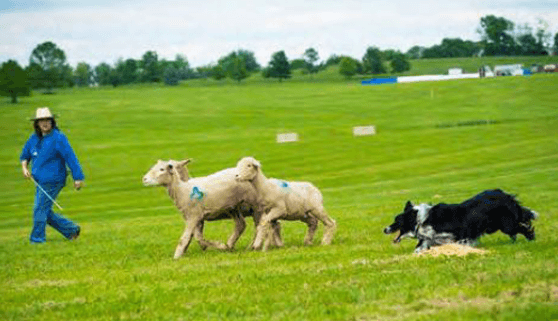 Tansy was not into sports. But her
adopted family played them all
the time. But border collies are working
dogs. After a little consternation,
Tansy’s new owner Robin Queen, a
linguist at the University of Michigan,
got some advice: sheep. As soon as
Tansy caught sight of some livestock,
“it was the first time she showed
evidence of understanding something
about the world,” Queen says.
That’s how Tansy got into competitive
sheepdog trials. Keeping a flock
on track can require dogged persistence.
It’s difficult and takes a lot of
practice. “We were a little bit unusual
in that we had very little dog experience
and certainly no livestock experience,”
Queen says.
Tansy was not into sports. But her
adopted family played them all
the time. But border collies are working
dogs. After a little consternation,
Tansy’s new owner Robin Queen, a
linguist at the University of Michigan,
got some advice: sheep. As soon as
Tansy caught sight of some livestock,
“it was the first time she showed
evidence of understanding something
about the world,” Queen says.
That’s how Tansy got into competitive
sheepdog trials. Keeping a flock
on track can require dogged persistence.
It’s difficult and takes a lot of
practice. “We were a little bit unusual
in that we had very little dog experience
and certainly no livestock experience,”
Queen says.
 You don’t have to wait for heroic saves or heartwarming news tidbits, especially
if you have little ones. Tons of books provide opportunities to bring
to life inspiring stories of the innate goodness of our fellow humans. Start with
these two simple tales.
You don’t have to wait for heroic saves or heartwarming news tidbits, especially
if you have little ones. Tons of books provide opportunities to bring
to life inspiring stories of the innate goodness of our fellow humans. Start with
these two simple tales.
 In 1944, a Columbia University
doctoral student in genetics named
Evelyn Witkin made a fortuitous
mistake. During her first experiment in
a laboratory at Cold Spring Harbor, in
New York, she accidentally irradiated
millions of E. coli with a lethal dose of
ultraviolet light. When she returned the
following day to check on the samples,
they were all dead —except for one, in
which four bacterial cells had survived
and continued to grow. Somehow, those
cells were resistant to UV radiation. To
Witkin, it seemed like a remarkably
lucky coincidence that any cells in the
culture had emerged with precisely the
mutation they needed to survive —so
much so that she questioned whether it
was a coincidence at all.
In 1944, a Columbia University
doctoral student in genetics named
Evelyn Witkin made a fortuitous
mistake. During her first experiment in
a laboratory at Cold Spring Harbor, in
New York, she accidentally irradiated
millions of E. coli with a lethal dose of
ultraviolet light. When she returned the
following day to check on the samples,
they were all dead —except for one, in
which four bacterial cells had survived
and continued to grow. Somehow, those
cells were resistant to UV radiation. To
Witkin, it seemed like a remarkably
lucky coincidence that any cells in the
culture had emerged with precisely the
mutation they needed to survive —so
much so that she questioned whether it
was a coincidence at all.
 Poke a hole in a human and something
remarkable happens –the
wound heals itself, filling in the missing
tissue and protecting itself from
infection. Poke a hole in a robot, however,
and prepare for a long night of
repairs. The machines may be stronger
than us, but they’re missing out on a
vital superpower.
Until now. Researchers at Belgium’s
Vrije Universiteit Brussel report this
week in Science Robotics that they’ve
developed a squishy, self-healing
robot. Cut it open, apply heat, let it
cool down again, and the wound heals
itself. While self-healing materials
are nothing new, their application in
so-called soft robotics —a relatively
new kind of pliable machine that uses
pneumatics or hydraulics to move—
could be big.
Poke a hole in a human and something
remarkable happens –the
wound heals itself, filling in the missing
tissue and protecting itself from
infection. Poke a hole in a robot, however,
and prepare for a long night of
repairs. The machines may be stronger
than us, but they’re missing out on a
vital superpower.
Until now. Researchers at Belgium’s
Vrije Universiteit Brussel report this
week in Science Robotics that they’ve
developed a squishy, self-healing
robot. Cut it open, apply heat, let it
cool down again, and the wound heals
itself. While self-healing materials
are nothing new, their application in
so-called soft robotics —a relatively
new kind of pliable machine that uses
pneumatics or hydraulics to move—
could be big.


 According to studies, it
seems that turmeric has a
number of potent benefits. The
problem seems to be how to
tap into them.
Turmeric is native to
Southeast Asia and a cousin
to ginger, the big fuss isn’t
necessarily about the exuberantly-
hued turmeric itself, but
a component within called
curcumin —a phytochemical
scientists found to have
powerful antioxidant and
anti-inflammatory properties
with revolutionary healing
potential.
As with matcha and coconut
oil, two other ingredients of
the moment with the wellness
set, we set out to understand
why turmeric is the ingredient
du jour, and whether it’s worth bolting right out to stock some
of that orangey goodness
in your pantry if you don’t
typically have a hankering for
Indian food.
One comprehensive scientific
report published in
2013 compiled the results of
a collection of clinical trials
of curcumin over the prior
50 years, claiming, to quote,
“promising effects” for a long
list of ailments, such as cancer,
cardiovascular disease,
arthritis, uveitis, ulcerative
proctitis, Crohn’s disease, ulcerative
colitis, irritable bowel
disease, tropical pancreatitis,
peptic ulcer, gastric ulcer, diabetes...
But how does it work
in the body?
According to studies, it
seems that turmeric has a
number of potent benefits. The
problem seems to be how to
tap into them.
Turmeric is native to
Southeast Asia and a cousin
to ginger, the big fuss isn’t
necessarily about the exuberantly-
hued turmeric itself, but
a component within called
curcumin —a phytochemical
scientists found to have
powerful antioxidant and
anti-inflammatory properties
with revolutionary healing
potential.
As with matcha and coconut
oil, two other ingredients of
the moment with the wellness
set, we set out to understand
why turmeric is the ingredient
du jour, and whether it’s worth bolting right out to stock some
of that orangey goodness
in your pantry if you don’t
typically have a hankering for
Indian food.
One comprehensive scientific
report published in
2013 compiled the results of
a collection of clinical trials
of curcumin over the prior
50 years, claiming, to quote,
“promising effects” for a long
list of ailments, such as cancer,
cardiovascular disease,
arthritis, uveitis, ulcerative
proctitis, Crohn’s disease, ulcerative
colitis, irritable bowel
disease, tropical pancreatitis,
peptic ulcer, gastric ulcer, diabetes...
But how does it work
in the body?
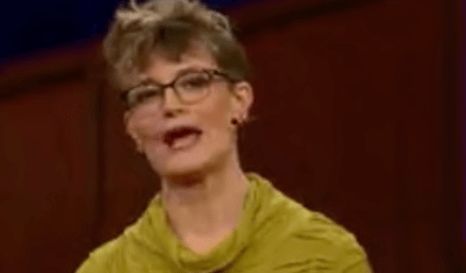 It’s not the passage of time
that makes it so hard to get
older. It’s ageism, a prejudice
that pits us against our future
selves –and each other.
Ashton Applewhite urges
us to dismantle the dread
and mobilize against the last
socially acceptable prejudice.
“Aging is not a problem to
be fixed or a disease to be
cured,” she says. “It is a natural,
powerful, lifelong process
that unites us all.”
Ashton Applewhite, author
of This Chair Rocks: A
Manifiesto Against Ageism,
and activist, asks us to look at
ageism –the assumption that
older people are alike and that
aging impoverishes us. It starts between your ears:
how do you feel about your
own aging? What messages
have you absorbed over the
years? Look at where they
come from. Think about
what purpose they serve.
Learn about longevity. Start a
consciousness-raising group.
Question the mainstream
narrative. Speak up when you
encounter ageist behavior
or attitudes. Join forces with
olders and youngers to make
ageism as unacceptable as any
other form of prejudice –and
to dismantle them all.
It’s not the passage of time
that makes it so hard to get
older. It’s ageism, a prejudice
that pits us against our future
selves –and each other.
Ashton Applewhite urges
us to dismantle the dread
and mobilize against the last
socially acceptable prejudice.
“Aging is not a problem to
be fixed or a disease to be
cured,” she says. “It is a natural,
powerful, lifelong process
that unites us all.”
Ashton Applewhite, author
of This Chair Rocks: A
Manifiesto Against Ageism,
and activist, asks us to look at
ageism –the assumption that
older people are alike and that
aging impoverishes us. It starts between your ears:
how do you feel about your
own aging? What messages
have you absorbed over the
years? Look at where they
come from. Think about
what purpose they serve.
Learn about longevity. Start a
consciousness-raising group.
Question the mainstream
narrative. Speak up when you
encounter ageist behavior
or attitudes. Join forces with
olders and youngers to make
ageism as unacceptable as any
other form of prejudice –and
to dismantle them all.
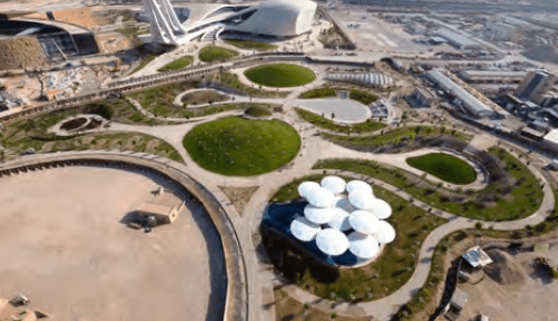 A “green lung” in Qatar’s desert
landscape is helping people stay
healthy and active by reconnecting
them to nature. Erik Behrens
and James Haig Streeter of AECOM
recently completed Oxygen Park, a
unique public space in Doha’s Education
City. Built to promote exercise
and social gatherings, Oxygen Park
is partly buried underground and
features undulating, organic forms
masses inspired by the desert’s winderoded
rocks and landscapes.
The park’s exercise features include
shaded running trails, subterranean
pitches for team sports, and equestrian
facilities. More passive recreational
areas also punctuate the park in the
form of water plazas, sensory gardens,
shade gardens, play gardens, and a series
of soundscape-filled, folly spheres.
The use of water and shade are seamlessly
integrated into the design to
provide relief from the hot climate. At
night, a beautiful lighting scheme illuminates
the park and water to create
a safe and attractive environment for
workouts and strolls after sundown.
A “green lung” in Qatar’s desert
landscape is helping people stay
healthy and active by reconnecting
them to nature. Erik Behrens
and James Haig Streeter of AECOM
recently completed Oxygen Park, a
unique public space in Doha’s Education
City. Built to promote exercise
and social gatherings, Oxygen Park
is partly buried underground and
features undulating, organic forms
masses inspired by the desert’s winderoded
rocks and landscapes.
The park’s exercise features include
shaded running trails, subterranean
pitches for team sports, and equestrian
facilities. More passive recreational
areas also punctuate the park in the
form of water plazas, sensory gardens,
shade gardens, play gardens, and a series
of soundscape-filled, folly spheres.
The use of water and shade are seamlessly
integrated into the design to
provide relief from the hot climate. At
night, a beautiful lighting scheme illuminates
the park and water to create
a safe and attractive environment for
workouts and strolls after sundown.
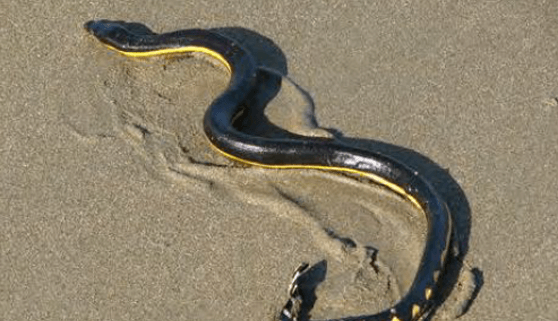 Sea snakes may be a new environmental
canary in the coal mine, as
one species has been steadily darkening
in response to higher levels of
water pollution off the coast of Australia.
Unlike the bleached white coral
reefs resulting from CO2-driven ocean
acidification, these snakes are not
changing color due to damage from
pollutants, although pollutants are,
indirectly, the source of the change.
The higher levels of melanin are
actually an evolutionary response to
help the snakes adapt to the polluted
waters, according to a recent study
published in Current Biology.
Surprisingly, this isn’t even the first
time this has happened.
Sea snakes may be a new environmental
canary in the coal mine, as
one species has been steadily darkening
in response to higher levels of
water pollution off the coast of Australia.
Unlike the bleached white coral
reefs resulting from CO2-driven ocean
acidification, these snakes are not
changing color due to damage from
pollutants, although pollutants are,
indirectly, the source of the change.
The higher levels of melanin are
actually an evolutionary response to
help the snakes adapt to the polluted
waters, according to a recent study
published in Current Biology.
Surprisingly, this isn’t even the first
time this has happened.
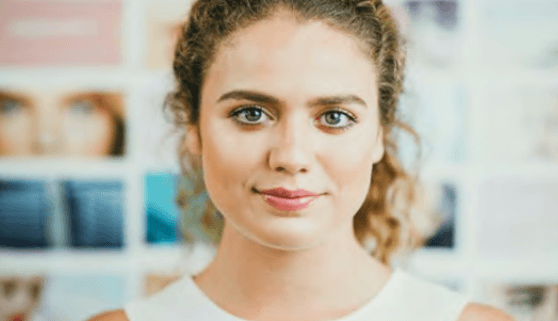 The UK adopted an equal pay law
over 45 years ago, and British
women have waited ever since to see
the promise of that law become reality.
Now, they refuse to spend another
minute waiting for what they deserve.
In April, the UK passed a law
requiring companies with over 250
employees to release their mean and
median gender pay gap figures within
one year. The law affects approximately
half the entire workforce –
about 9,000 companies and 15 million
employees.
The UK adopted an equal pay law
over 45 years ago, and British
women have waited ever since to see
the promise of that law become reality.
Now, they refuse to spend another
minute waiting for what they deserve.
In April, the UK passed a law
requiring companies with over 250
employees to release their mean and
median gender pay gap figures within
one year. The law affects approximately
half the entire workforce –
about 9,000 companies and 15 million
employees.
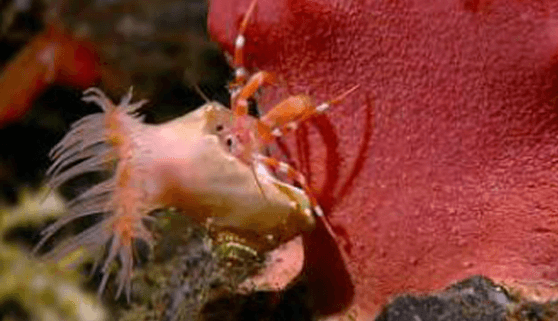 1 Sea anemones and
hermit crabs. Hermit
crabs and sea anemones
have worked out a deal
to help keep them both
safe. The hermit crab will
approach a sea anemone
and give it a little pinch,
making it release itself
from wherever it previously
called home. Then,
the crab lifts up the sea
anemone and allows it
to attach to its shell. Once there, they
roam the ocean together.
Why do such a strange thing? The
sea anemone’s barbed tentacles ward
off any incoming predators that
might be interested in the crab, and
in exchange, the crab scares away any
predators that might be coming for the
sea anemone.
And there’s an added bonus: the sea
anemone eats the crab’s leftovers as
they come by.
1 Sea anemones and
hermit crabs. Hermit
crabs and sea anemones
have worked out a deal
to help keep them both
safe. The hermit crab will
approach a sea anemone
and give it a little pinch,
making it release itself
from wherever it previously
called home. Then,
the crab lifts up the sea
anemone and allows it
to attach to its shell. Once there, they
roam the ocean together.
Why do such a strange thing? The
sea anemone’s barbed tentacles ward
off any incoming predators that
might be interested in the crab, and
in exchange, the crab scares away any
predators that might be coming for the
sea anemone.
And there’s an added bonus: the sea
anemone eats the crab’s leftovers as
they come by.

 Bluetooth splash resistant
speakers. www.amazon.com
Bluetooth splash resistant
speakers. www.amazon.com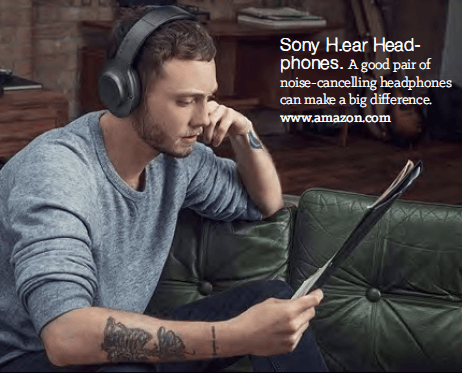 A good pair of
noise-cancelling headphones
can make a big difference.
www.amazon.com
Take a look at this
A good pair of
noise-cancelling headphones
can make a big difference.
www.amazon.com
Take a look at this
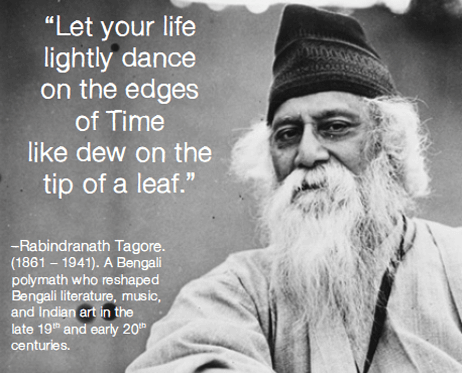 “Let your life
lightly dance
on the edges
of Time
like dew on the
tip of a leaf.”
“Let your life
lightly dance
on the edges
of Time
like dew on the
tip of a leaf.”

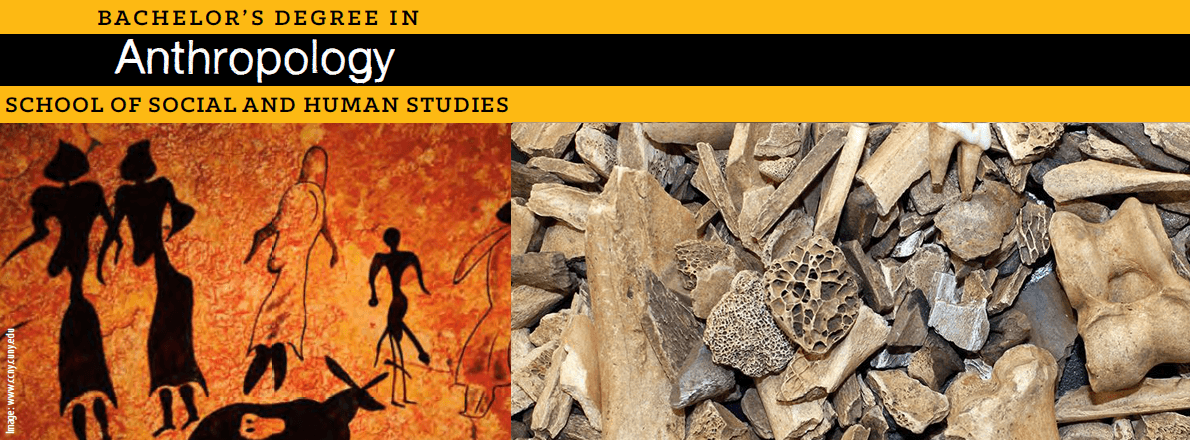 The Bachelor of Anthropology
(BA) program objective is to help
students achieve a balance between
the theoretical and practical aspects
and methodological process of
anthropology. It also looks at general
and specific issues of cultural heritage
management. The Bachelor of Anthropology
(BA) program is offered online
via distance learning. After evaluating
both academic record and life experience,
AIU staff working in conjunction
with Faculty and Academic Advisors
will assist students in setting up a
custom-made program, designed on an
individual basis. This flexibility to meet
student needs is seldom found in other
distance learning programs. Our online
program does not require all students
to take the same subjects/courses, use
the same books, or learning materials.
Instead, the online Bachelor of
Anthropology (BA) curriculum is
designed individually by the student
and academic advisor. It specifically
addresses strengths and weaknesses
with respect to market opportunities in
the student’s major and intended field
of work. Understanding that industry
and geographic factors should influence
the content of the curriculum
instead of a standardized one-fits-all
design is the hallmark of AIU’s unique
approach to adult education. This philosophy addresses the dynamic and
constantly changing environment of
working professionals by helping adult
students in reaching their professional
and personal goals within the scope of
the degree program.
The Bachelor of Anthropology
(BA) program objective is to help
students achieve a balance between
the theoretical and practical aspects
and methodological process of
anthropology. It also looks at general
and specific issues of cultural heritage
management. The Bachelor of Anthropology
(BA) program is offered online
via distance learning. After evaluating
both academic record and life experience,
AIU staff working in conjunction
with Faculty and Academic Advisors
will assist students in setting up a
custom-made program, designed on an
individual basis. This flexibility to meet
student needs is seldom found in other
distance learning programs. Our online
program does not require all students
to take the same subjects/courses, use
the same books, or learning materials.
Instead, the online Bachelor of
Anthropology (BA) curriculum is
designed individually by the student
and academic advisor. It specifically
addresses strengths and weaknesses
with respect to market opportunities in
the student’s major and intended field
of work. Understanding that industry
and geographic factors should influence
the content of the curriculum
instead of a standardized one-fits-all
design is the hallmark of AIU’s unique
approach to adult education. This philosophy addresses the dynamic and
constantly changing environment of
working professionals by helping adult
students in reaching their professional
and personal goals within the scope of
the degree program.
 Atlantic International University is accredited by the Accreditation Service for International
Schools, Colleges and Universities (ASIC). ASIC Accreditation is an internationally
renowned quality standard for colleges and universities. Visit ASIC’s Directory of Accredited
Colleges and Universities. ASIC is a member of CHEA International Quality Group (CIQG) in
the USA, an approved accreditation body by the Ministerial Department of the Home Office in the UK,
and is listed in the International Directory of the Council for Higher Education Accreditation (CHEA).
AIU meets all state and federal laws as a degree-granting institution in the United States and the State of
Hawaii. The University was legally established by corporate charter in 1998 and is in good standing.
Atlantic International University is accredited by the Accreditation Service for International
Schools, Colleges and Universities (ASIC). ASIC Accreditation is an internationally
renowned quality standard for colleges and universities. Visit ASIC’s Directory of Accredited
Colleges and Universities. ASIC is a member of CHEA International Quality Group (CIQG) in
the USA, an approved accreditation body by the Ministerial Department of the Home Office in the UK,
and is listed in the International Directory of the Council for Higher Education Accreditation (CHEA).
AIU meets all state and federal laws as a degree-granting institution in the United States and the State of
Hawaii. The University was legally established by corporate charter in 1998 and is in good standing.
 If a student outside the U.S. wishes to carry
out a particular procedure within a country’s
Department of Education regarding their
degree earned at AIU, such procedures are to
be carried out independently by the student.
AIU respects the unique rules and regulations
of each country and does not intervene or
influence the respective authorities. We
recommend prospective students who
intend to carry out such procedures
outside the U.S. to verify in detail the
steps and requirements needed in
order to be fully informed.
If a student outside the U.S. wishes to carry
out a particular procedure within a country’s
Department of Education regarding their
degree earned at AIU, such procedures are to
be carried out independently by the student.
AIU respects the unique rules and regulations
of each country and does not intervene or
influence the respective authorities. We
recommend prospective students who
intend to carry out such procedures
outside the U.S. to verify in detail the
steps and requirements needed in
order to be fully informed.
 The School of Business and Economics
allows aspiring and practicing
professionals, managers, and entrepreneurs
in the private and public sectors
to complete a self paced distance
learning degree program of the highest
academic standard.
The ultimate goal is to empower
learners and help them take advantage
of the enormous array of resources
from the world environment in order
to eliminate the current continuum of
poverty and limitations.
Degree programs are designed for
those students whose professional experience has been in business,
marketing, administration, economics,
finance and management.
The School of Business and Economics
allows aspiring and practicing
professionals, managers, and entrepreneurs
in the private and public sectors
to complete a self paced distance
learning degree program of the highest
academic standard.
The ultimate goal is to empower
learners and help them take advantage
of the enormous array of resources
from the world environment in order
to eliminate the current continuum of
poverty and limitations.
Degree programs are designed for
those students whose professional experience has been in business,
marketing, administration, economics,
finance and management.
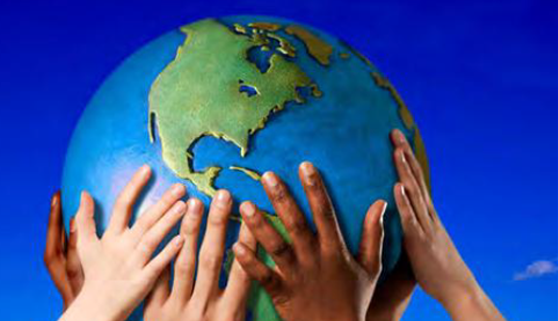 The School of Social and Human Studies
is focused on to the development of
studies which instill a core commitment
to building a society based on social and
economic justice and enhancing opportunities
for human well being.
The founding principles lie on the
basic right of education as outlined
in the Declaration of Human Rights.
We instill in our students a sense of
confidence and self reliance in their
ability to access the vast opportunities
available through information channels,
the world wide web, private, public,
nonprofit, and nongovernmental organizations in an ever expanding
global community.
Degree programs are aimed towards
those whose professional life has been
related to social and human behavior,
with the arts, or with cultural studies.
The School of Social and Human Studies
is focused on to the development of
studies which instill a core commitment
to building a society based on social and
economic justice and enhancing opportunities
for human well being.
The founding principles lie on the
basic right of education as outlined
in the Declaration of Human Rights.
We instill in our students a sense of
confidence and self reliance in their
ability to access the vast opportunities
available through information channels,
the world wide web, private, public,
nonprofit, and nongovernmental organizations in an ever expanding
global community.
Degree programs are aimed towards
those whose professional life has been
related to social and human behavior,
with the arts, or with cultural studies.
 The School of Science and Engineering
seeks to provide dynamic, integrated,
and challenging degree programs
designed for those whose experience
is in industrial research, scientific production,
engineering and the general
sciences. Our system for research and
education will keep us apace with the
twenty-first century reach scientific
advance in an environmentally and
ecologically responsible manner to allow
for the sustainability of the human
population. We will foster among our
students a demand for ethical behavior,
an appreciation for diversity, an understanding
of scientific investigation,
The School of Science and Engineering
seeks to provide dynamic, integrated,
and challenging degree programs
designed for those whose experience
is in industrial research, scientific production,
engineering and the general
sciences. Our system for research and
education will keep us apace with the
twenty-first century reach scientific
advance in an environmentally and
ecologically responsible manner to allow
for the sustainability of the human
population. We will foster among our
students a demand for ethical behavior,
an appreciation for diversity, an understanding
of scientific investigation,
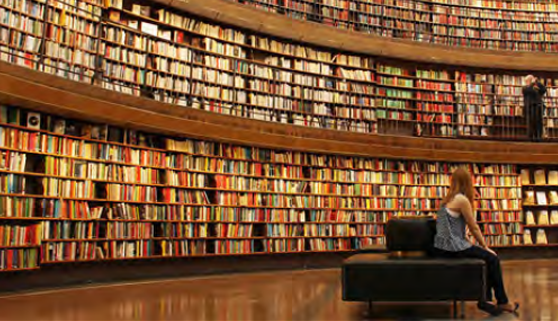 With access to a global catalog created and maintained collectively by more than
9,000 participating institutions, AIU students have secured excellent research
tools for their study programs.
With access to a global catalog created and maintained collectively by more than
9,000 participating institutions, AIU students have secured excellent research
tools for their study programs.